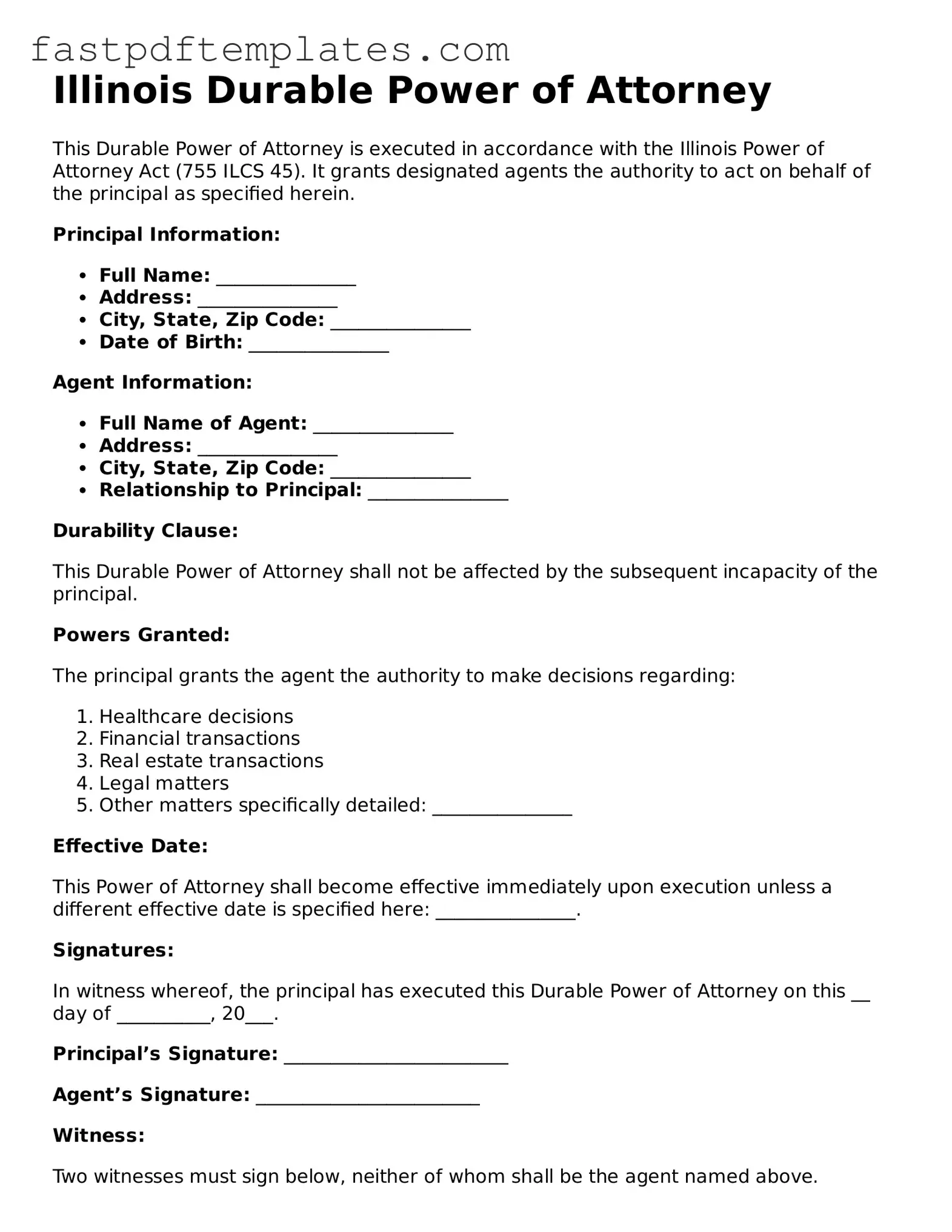Attorney-Approved Illinois Durable Power of Attorney Document
The Illinois Durable Power of Attorney form is a legal document that allows an individual to designate another person to make decisions on their behalf, particularly in financial and healthcare matters. This form remains effective even if the individual becomes incapacitated, ensuring that their preferences are honored. Understanding its importance can provide peace of mind for both the principal and the agent involved.
Access Document

Attorney-Approved Illinois Durable Power of Attorney Document
Access Document
Your form still needs completion
Complete your Durable Power of Attorney online and download the final PDF.
Access Document
or
Click for PDF Form
